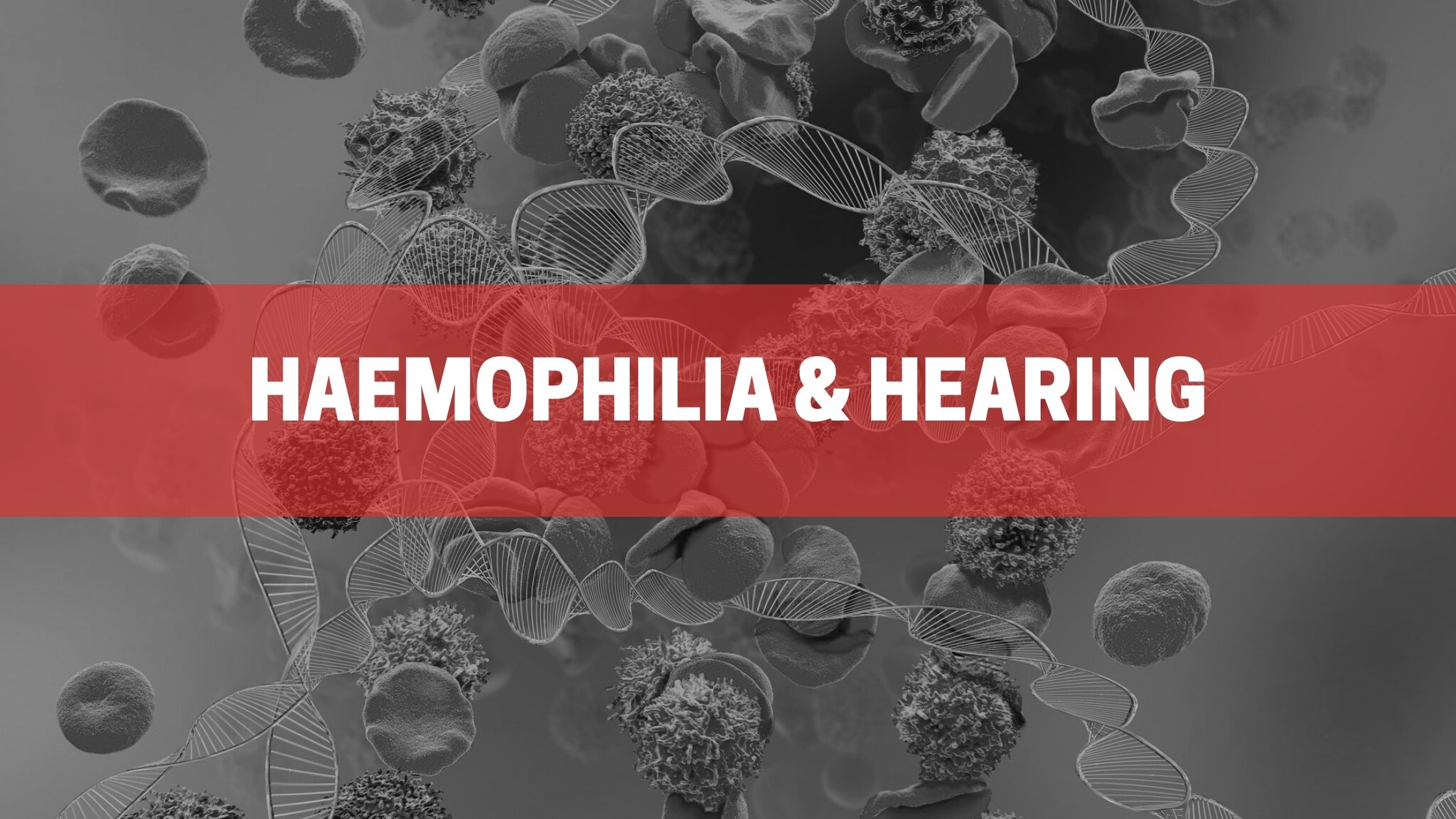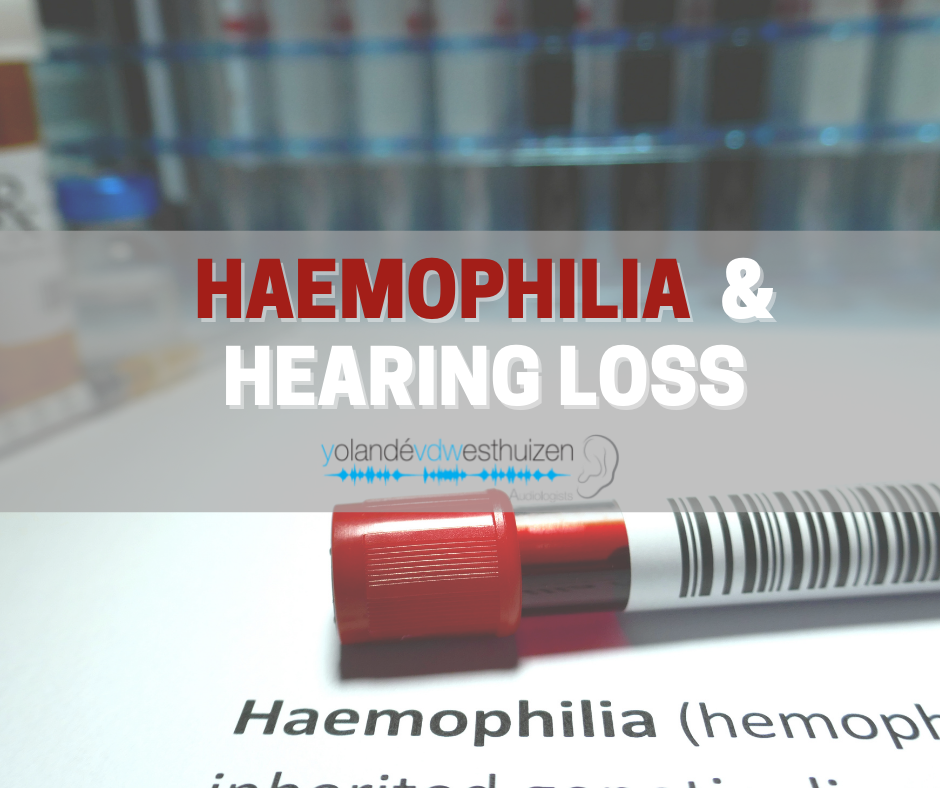
Hemophilia is a rare disorder in which the blood doesn’t clot in the typical way because it doesn’t have enough blood-clotting proteins (clotting factors). If you have hemophilia, you might bleed for a longer time after an injury than you would if your blood clotted properly.
Small cuts usually aren’t much of a problem. If you have a severe form of the condition, the main concern is bleeding inside your body, especially in your knees, ankles and elbows. Internal bleeding can damage your organs and tissues and be life-threatening.
Hemophilia is almost always a genetic disorder. Treatment includes regular replacement of the specific clotting factor that is reduced. Newer therapies that don’t contain clotting factors also are being used. (https://www.mayoclinic.org/diseases-conditions/hemophilia/symptoms-causes/syc-20373327)
Blood flow and clotting irregularities can affect the small, sensitive arterial bloodflow to the inner ear structures. Cochlear micro-thrombosis has been hypothesizes as pathogenic mechanism in this disease. Arterial blood flow to the vestibulocochlear nerve as well as the cochlear structures are incredibly sensitive and any pathology here might lead to permanent hearing loss.
Frequent monitoring of hearing abilities are recommended in cases of haemophilia.
centurion@yvdwaudiology.co.za | benoni@yvdwaudiology.co.za | saxby@yvdwaudiology.co.za
